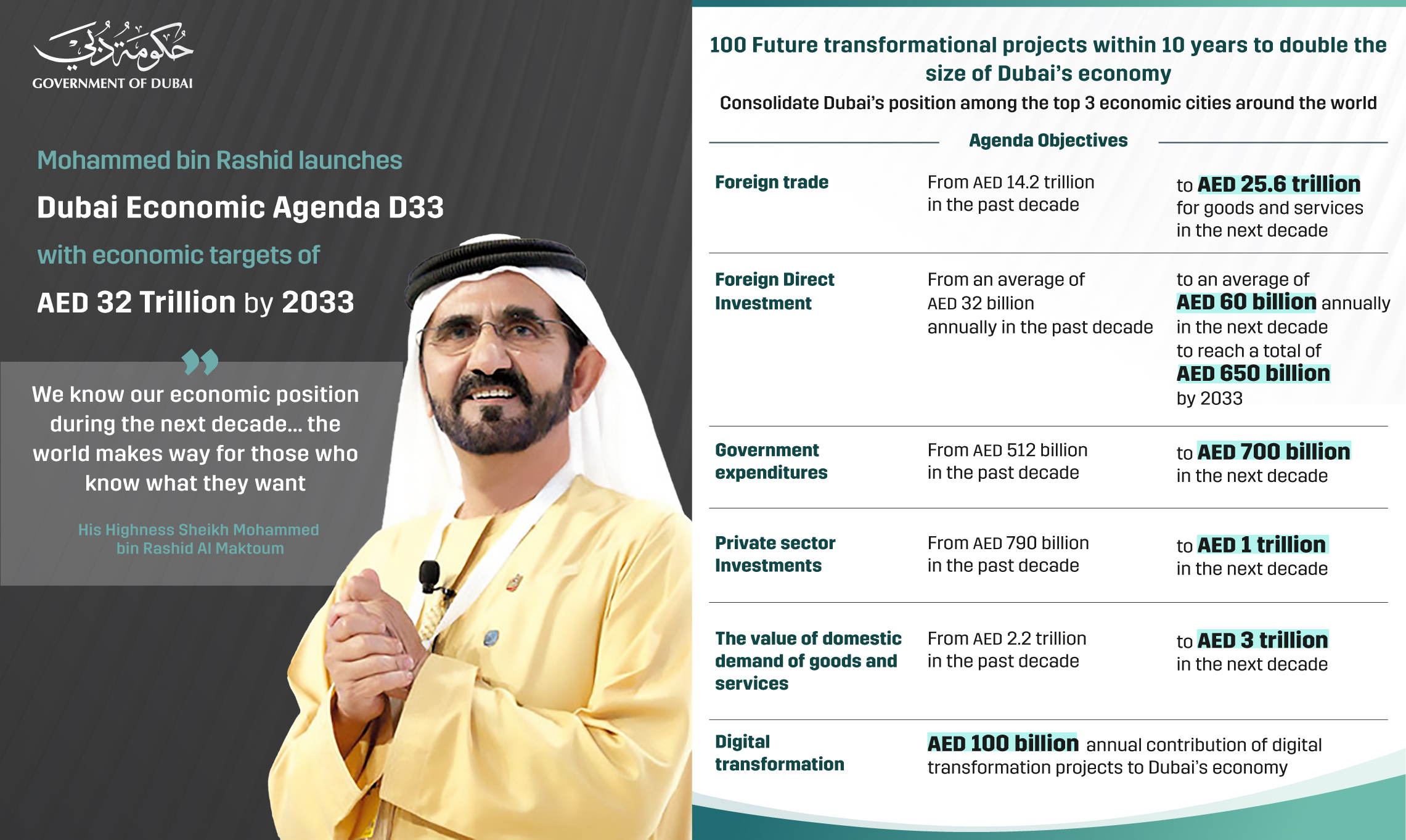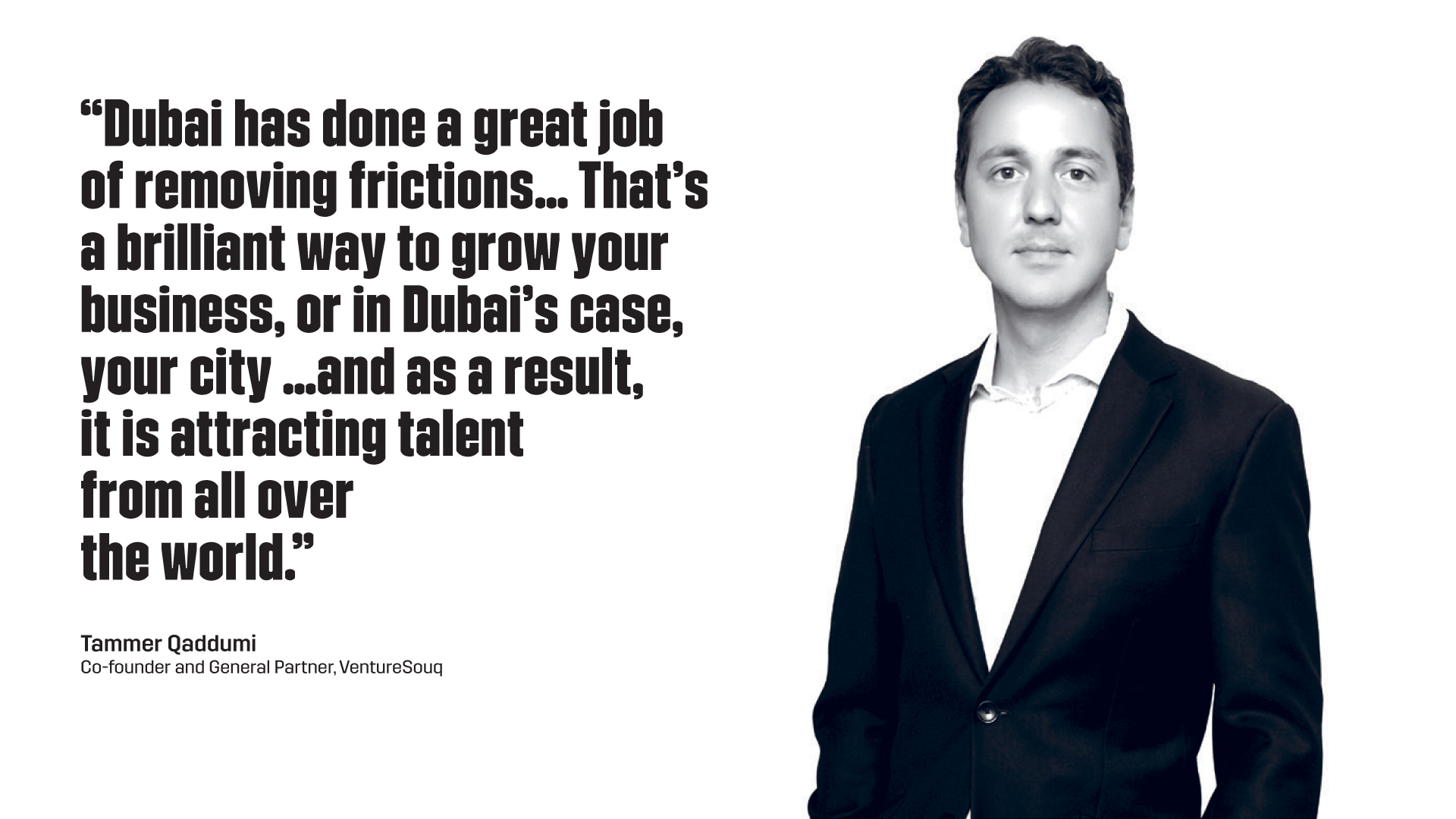Driving Digital Economy: Dubai's Initiatives in Building a Resilient Tech Startup Landscape
21 June 2023•
A Look Back: A city creating seamless user experiences
There is no denying that actions of the government have made Dubai a success as it ranks high on a number of factors, including ease of doing business, access to talent, ability to attract talent from abroad to relocate to the Emirate, access to capital, competitive tax incentives, and quality of life. All this coupled with Dubai’s attractive geographic location and proximity to many of the world’s top cities makes it a perfect hotspot for companies to setup shop and pursue their global ambitions.
A slew of measures and strategic projects have been instrumental in attracting enterprises to Dubai, going back as far as 1999 when Dubai Internet City was established. Dubai Internet City is now home to the world’s well-known tech companies like Microsoft, Oracle, IBM, Facebook, Cisco, Dell, and many more, that use Dubai as their regional headquarters for the MENA and surrounding regions.
The UAE also launched the FedNet in 2015 to act as digital infrastructure for its government, followed by the establishment of Dubai Future Foundation, which is tasked with future-proofing Dubai.
After the successful completion of Dubai’s Blockchain Strategy and Dubai’s Smart City Strategy, Dubai also launched Smart Dubai 2021 Strategy to drive economic growth and customer happiness amongst Dubai residents, while simultaneously ensuring resource and infrastructure resilience. In 2022, the Dubai Digital Economy Strategy was launched, along with the city’s own Metaverse Strategy.
And with Dubai’s ‘D33’ Economic Agenda released at the beginning of 2023, the city shows no sign of slowing down.
Dubai was also the first in the region to launch an investment fund and incubator focused on Fintechs with Fintech Hive in 2018. Today Fintech Hive has evolved to support more than fintechs, although that industry remains a critical focal area. More recently, the Dubai Future District Fund was established in 2021, which is Dubai’s first major Fund of Funds player, with the ability to make co-investments as well.
The country’s new visa scheme is also seen to be a major step forward in nurturing a stronger digital economy and digital nomad community in Dubai. The Emirate has consistently ranked among the top 20 globally (No. 1 in the MENA region) in the World Bank’s ease of doing business report, in the previous two editions. Starting a business takes just 4 days with just 2-3 procedures, ranking the Emirate 17th in the last edition of the ease of doing business report. In comparison, the average in MENA is around 20 days with six to seven procedures to start a business.
Succinctly put by Tammer Qaddumi, co-founder and General Partner at VentureSouq, “Dubai has done a great job of ‘removing frictions.’ It’s the principal aim of almost every product designer. Don’t make it hard for people to come to your site and access your stuff. Dubai has nailed that same mindset, but at the level of a city – rather than an app or website – making it easy for people and companies to come and stay. That’s a brilliant way to grow your business, or in Dubai’s case, your city. Dubai has really nailed that, and as a result it is attracting talent from all over the world.”
A Look Forward: Digital economy ambitions in step with economic agenda

In April 2022, the UAE Digital Economy Strategy was launched with the aim to double the contribution of digital economy to the country’s GDP, from roughly 10% to 20% by 2032. Early in January 2023, Dubai Economic Agenda ‘D33’ was launched by Vice President and Prime Minister of the UAE and Ruler of Dubai, Sheikh Mohammed bin Rashid Al Maktoum. The agenda aims to accelerate growth by investing in human development, skillsets and advanced technology, while consolidating Dubai’s global competitiveness, innovation and knowledge-based economy. Some of the objectives of the Dubai Economic Agenda include:
- Raise the total value of foreign trade in goods and services from Dhs 14.2 trillion (US$3.9 trillion) in the past 10 years to Dhs 25.6 trillion (US$7.0 trillion) in the next decade.
- Raise the contribution of FDI to Dubai’s economy from an average of Dhs 32 billion (US$8.7 billion) annually in the past decade, to an average of Dhs 60 billion (US$16.3 billion) annually in the next decade to reach a total of Dhs 650 billion (US$177 billion) over the next 10 years.
- Growth in government expenditures from Dhs 512 billion (US$139 billion) in the past decade to Dhs 700 billion (US$191 billion) in the next decade, with increased investment in both the future growth sectors and further development of traditional trade and economic sectors.
- Raise the competitiveness of the city’s business sector, which will enable the increase of private sector investment from Dhs 790 billion (US$215 billion) in the past decade to Dhs 1 trillion (US$272 billion) by 2033.
- Focus on diversified economy by increasing the value of domestic demand of goods and services from Dhs2.2 trillion (US$599 billion) in the past decade to Dhs3 trillion (US$817 billion) in the coming decade.
- Generating new economic value from digital transformation, at an average of Dhs100bn (US$ 27billion) annually.
The Agenda involves initial projects announced, including addition of 400 cities as key trade partners with a focus on enhancing existing foreign trade relations with Africa, Latin America and Southeast Asia; supporting 30 companies in new sectors to become global unicorns; integrating 65,000 young Emiratis into the workforce and the private sector; incubating business innovation by enabling the testing and marketing of new products and technologies via Sandbox Dubai; promoting the growth of small and medium enterprises by identifying 400 high-potential companies; and attracting the world’s best universities as part of the broader aim of making Dubai a leading global hub for higher education.
To get the lay of the investor landscape across Dubai and MENA, and for insights provided by the investors backing the start-ups and scale-ups that are changing the face of entrepreneurship in the region, read the report by clicking here.

Next: Dubai's Global Attractiveness: Perspectives from Venture Capitalists
Related Articles:
- VentureSouq and VC’s Growing Role in Sustainability
- MENA's startup growth continues to be led by Dubai: over $11.7B lifetime raised across 306 scaleups
- Dubai Chamber of Digital Economy Publishes 2023 Venture Report; Dubai adds 64 more scale-ups in 2022


%2Fuploads%2Fdubai-vc-ecosystem%2Fcover-ent.jpg&w=3840&q=75)